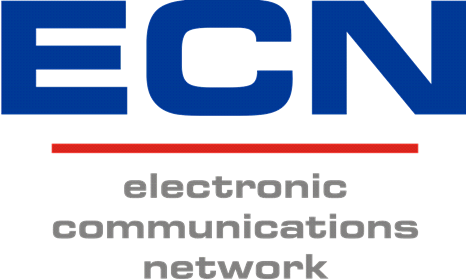[ Brainstorm Magazine ] – There was a time when corporate South Africa wanted little more from their telecoms supplier than a basic telephone service…
Today expectations are much higher. In the post-internet age we expect to transfer data between remote offices in an instant and transact with our customers via video-conferencing. Even for the humble telephone call, expectations are changing, as a growing number of businesses turn to Next Generation Networks (NGN’s) and Voice over Internet Protocol (VoIP) solutions as a means to control costs and increase flexibility.
NGN’s are based on a genuinely innovative set of technologies that are transforming the way businesses communicate today and will ultimately revolutionise how we all communicate in the future. The key to this lies in the difference between what existing networks and NGN’s have to offer.
The majority of traditional voice and data networks are underpinned by multiple network platforms that employ a variety of of different transmission protocols. Each of these platforms is dedicated to supplying a single type of traffic, such as voice, data or video. This mix and match approach is complex to support and expensive to scale.
In comparison, NGN’s take a converged approach to network services. All types of network traffic are transmitted on a single, coherent platform, based purely on a common protocal. This simplifies communication infrastructures enormously, reducing not only the number of network devices needed to create the network, but also the cost and resources required to maintain it. A general trend is for IP to be adopted as the common protocol of choice for converged networks. This has heped drive the move toward wholesale acceptance of NGNs.
This, in part, is due to the fact that over the last decade IP has grown in stature, becoming a standard across the entire Information Communication Technology (ICT) Industry. When ECN entered the market, corporate voice services were primarily delivered using legacy Time Division Multiplexing (TDM) and grey Least Cost Routing (LCR) Technology.
Visionary Strategy
ECN’s vision for how corporate voice should be provided in the future led to to construction of its IP-based NGN. This strategy has enabled ECN to differentiate itself from its competitors and ensure that it is strongly positioned within the SA telecommunications market.
ECN’s IP-based NGN provides it with the following competitive advantages:
- NGN’s are significantaly more efficient than legagy TDM networks. This enables ECN to transmit voice traffic at much lower costs that the TDM-based Incumbernt operators; and
- An all-IP network enables ECN to provide converged voice and data services to its customers over a single network thereby substantially reducing the cost of building and maintaining two seperate networks.
ECN has used an ‘asset light’ approach to build and operate its NGN, adopting the view that capital should only be invested in the network at the points of highest value. To this end, ECN owns and manages the layer 2 and 3 switching and routing platforms. This asset light model incorporates the necessary objectivity required to provide the network solution that most closely fits each customer’s requirements.
As as asset light operator ECN does not own telecommunications assets or have preferred partners and therefore has the freedom to source infrastructure from the most suitable suppliers on a case-by-case basis. ECN was the first NGN in the market to sign, certify and implement bilateral interconnect agreements with all the incumbent operators.
ECN has also deployed points of presence (POPs) in all of South Africa’s major metropolitan centres including Johannesburg, Pretoria, Bloemfontein, Cape Town and Durban. These POPs are connected by a high capacity, self healing fibre ring built using Cisco MPLS technology. ECN’s access network has been developed using a range of mediums including copper wire, fibre optic cable, digital microwave and WiMAX.
ECN also deploys DSL or 3G access solutions, which can be used as an effective way to extend the reach of peripheral offices or mobile / remote workers. The objective of this approach is to provide our customers with an IP ‘one network many services approach’ as opposed to a legacy TDM ‘one network one service’ design. ECN’s national network is monitored 24/7/365 from its state of the art Network Operations Centre (NOC). The NOC enables ECN to be more proactive in anticipating, localising and isolating problems.
When problems occur, the activities of the frontline personnel are co-ordinated and despatched from a single control point based in Rosebank, Johannesburg. The NOC is also capable of providing an up to the minute, real-time visual summary of the status of the entire network. As the owner of one of the most advanced NGN’s in South Africa, ECN really is the future of converged business communications.
We recognise the incredible ability of ICT to profoundly transform the way that organisations work by making it easier and cheaper for people to access information and make telepone calls. We have investied a significant amount of time, effort and money in creating a vast, highly resilient and fully flexible NGN. By plugging into it, you will gain immediate access to a complete range of voice and data services, from IP telephony to broadband and more.
However what really differentiates us from our competitors is the combination of our two greatest assets, namely our next generation network and our next generation mindset. Choose to work with ECN and we’ll replace legacy Telco attitudes with an enthusiatic ‘can do’ or ‘why not’ approach in which our success is measured by the contribution we make to yours.

